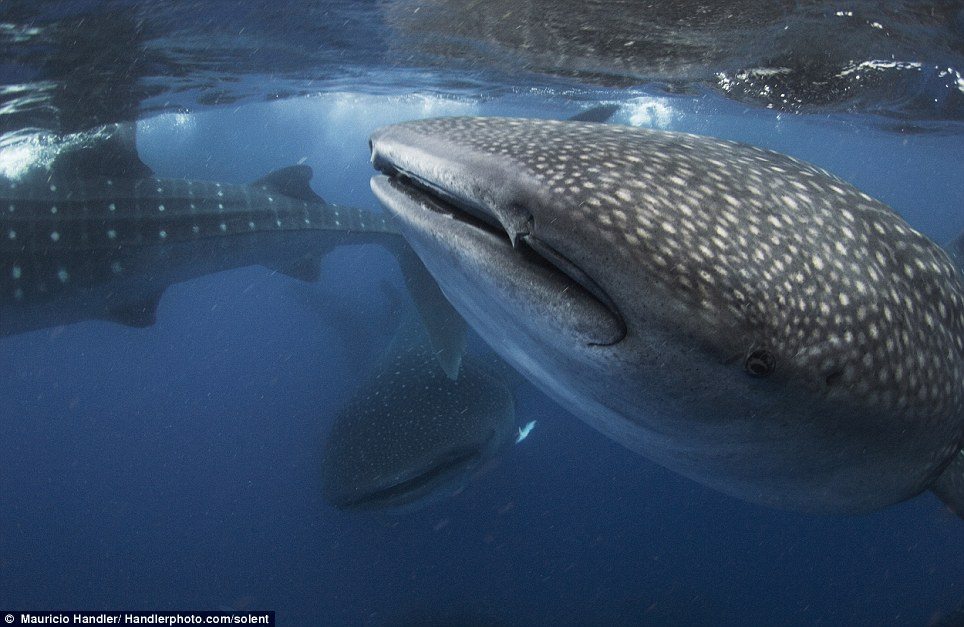Pelagic. Ah, the word itself sounds quite foreign to some divers, especially the newly certified ones. In the diver’s dictionary, pelagic are largely referred to as “the big stuff” or “big fish”.
On the contrary, pelagic marine life actually range in size from small coastal forage fish, such as sardines, to large apex predators, such as oceanic sharks.
So, what exactly is the definition of pelagic? In terms of zoology, pelagic are ocean creatures living in the upper waters of open sea. They live in the pelagic zone of ocean or seawaters – being neither close to the bottom nor near the shore – in contrast with demersal fish, which do live and feed on or near the bottom of seas, and reef fish, which are associated with coral reefs.
Ocean pelagic creatures are usually agile swimmers with streamlined bodies, capable of sustained cruising on long distance migrations.
The most popular and raved-about pelagic ocean animal is the majestic whale shark. Despite being one of the 3 largest species of pelagic oceanic sharks, it has a reputation as a “gentle giant”. This is probably because of its filter-feeding nature. The diet of a whale shark consists mainly of planktons, krill, small fish, and squid.
The whale shark does not pose significant danger to humans. In fact, they are rather docile and divers have actually come in close contact with them, swimming alongside these marine mammals.
These gentle underwater creatures are, however, under the threat of extinction. As such, conservationist parties such as WWF have introduced regulation guidelines to protect these sharks. This includes limiting the number of swimmers per boat, and allowing only snorkel activities for whale shark viewing in certain areas.
Donsol, Philippines is probably one of the best places in the world that can offer an almost assured whale shark encounter during the season. As such, it has been awarded the title ““Whale Shark Capital of the World”.
Donsol Bay almost guarantees the most fulfilling interactions where the whale sharks swim right up to the surface to be greeted by the excited snorkelers. Since these magnificent creatures have become an attraction, regulation laws have been exercised whereby only snorkeling is allowed in the Bay to protect the interests of the whale sharks.
Diving in Donsol is also available and you will get to visit nearby local dive sites such as Manta Bowl, where you might have the chance to encounter whale sharks while scuba diving too! At Manta Bowl, you may also encounter other pelagic marine creatures like manta rays and occasional hammerheads.
Generally, whale shark season is from November to June, with presence peaking between February and May.
For more details on our Donsol trip packages, drop us a message today!




I’ve always been fascinated by whale sharks! They’re such gentle giants. It’s great to know that there are conservation efforts in place to protect them.
Hi Kavin, thanks for sharing your enthusiasm for whale sharks! We’re thrilled to hear that you’re interested in these magnificent creatures. At Gill Divers, we take conservation efforts seriously and work closely with organizations like WWF to ensure the protection of these gentle giants. If you’re interested in learning more about our conservation initiatives or planning a trip to see whale sharks up close, feel free to drop us a message at [[email protected]](mailto:[email protected]) or give us a call at +65 6734 9373. We’d be happy to help!
Pelagic marine life is truly awe-inspiring. I love learning about different species and their habitats. This article has definitely piqued my interest in whale sharks!
Hi Lily Wong, thank you for sharing your enthusiasm about pelagic marine life! We’re thrilled to hear that our article has sparked your interest in whale sharks. At Gill Divers, we believe it’s essential to appreciate and respect these magnificent creatures. If you have any questions or would like to know more about our diving trips, please don’t hesitate to reach out to us at Tel: +65 6734 9373 or Email: [email protected].
I never knew that pelagic marine life could range from small coastal forage fish to large apex predators like oceanic sharks. This is definitely something I’ll be keeping in mind for my future diving adventures.
Hi Siti Nurul Hidayah, we’re glad you found the information about pelagic marine life interesting! At Gill Divers, our objective is to not only provide a unique diving experience but also to promote better respect and appreciation of the ocean and its life. We believe that understanding more about these creatures can inspire us to take action in protecting them. If you have any further questions or would like to know more about our upcoming trips, feel free to contact us at +65 6734 9373 or [email protected]. Looking forward to hearing from you again!.